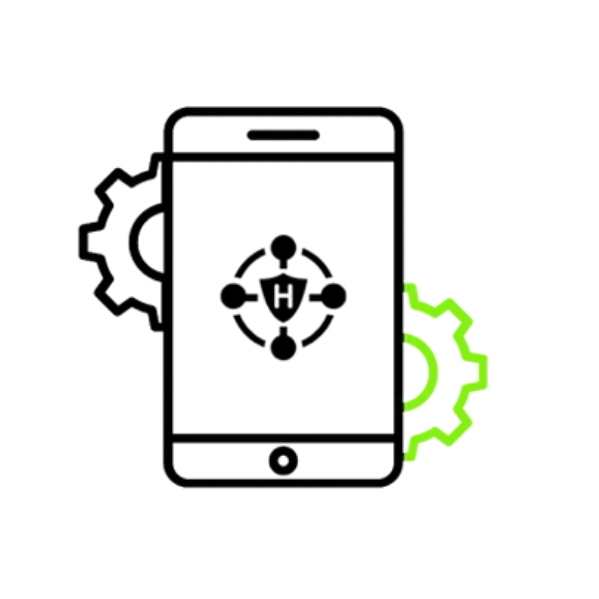- info@einnovention.us
- THIS SITE IS OWNED AND OPERATED BY MUHAMMAD AATIF NADEEM.
Hybrid App Development

Title: Exploring the World of Hybrid App Development: Best of Both Worlds
Introduction
In today's fast-paced digital landscape, mobile applications have become an integral part of our daily lives. Whether it's ordering food, booking a ride, or staying connected with loved ones, mobile apps offer unparalleled convenience. However, developers face the constant challenge of choosing the right approach to create these apps—native or hybrid. In this blog, we'll dive into the world of hybrid app development, uncovering its benefits, drawbacks, and best practices.
Understanding Hybrid App Development
Hybrid app development is an approach that combines the best of both worlds: native and web technologies. In simple terms, hybrid apps are essentially web apps wrapped in a native container, providing the ability to access device features through plugins or APIs. This approach allows developers to write code once and deploy it across multiple platforms, such as iOS and Android.
Benefits of Hybrid App Development
- Cross-Platform Compatibility: One of the most significant advantages of hybrid apps is their ability to work on multiple platforms using a single codebase. This means developers can save time and resources by avoiding the need to develop separate apps for each platform.
- Faster Development Cycle: Writing code once for multiple platforms drastically reduces development time. This is especially beneficial for startups and companies with limited resources, as they can bring their app to market faster.
- Cost-Effective: Since hybrid apps share a common codebase, the development and maintenance costs are significantly lower compared to developing separate native apps for each platform.
- Access to Device Features: Hybrid apps can access device features like cameras, GPS, and sensors through plugins or APIs, making them capable of delivering a native-like experience.
- Simplified Updates: Updating hybrid apps is more straightforward, as changes are applied to the single shared codebase, ensuring consistency across all platforms.
Drawbacks of Hybrid App Development
- Performance: While hybrid apps have come a long way in terms of performance, they might still lag behind native apps, especially when it comes to graphics-intensive applications or games.
- Limited Native Features: Although hybrid apps can access many device features, they might not have access to the latest native features and functionalities as quickly as native apps do.
- User Experience: Achieving a seamless user experience across different platforms can be challenging, as user interfaces need to adapt to the native design guidelines of each platform.
- Dependence on Third-Party Tools: Hybrid app development often relies on third-party frameworks like Apache Cordova or React Native, which might introduce compatibility issues or dependency concerns.
Best Practices for Hybrid App Development
- Choose the Right Framework: Select a framework that aligns with your project's requirements and your team's expertise. Popular choices include React Native, Ionic, and Flutter.
- Optimize Performance: Pay close attention to performance optimization, leveraging techniques like code splitting, lazy loading, and efficient caching to ensure a smooth user experience.
- Prioritize User Experience: Aim to provide a consistent and user-friendly experience across all platforms by adhering to each platform's design guidelines and standards.
- Test Thoroughly: Rigorously test your app on different devices and operating systems to identify and resolve any compatibility or performance issues.
- Stay Updated: Keep up with the latest developments in hybrid app development, as frameworks and technologies are continually evolving. Regularly update your app to incorporate new features and improvements.
Conclusion
Hybrid app development offers a compelling solution for building cross-platform applications that balance development speed, cost-effectiveness, and access to native features. While there are challenges to overcome, hybrid apps have proven their worth in various industries and use cases. By following best practices and staying updated with the latest advancements, developers can harness the power of hybrid app development to create efficient, user-friendly applications that cater to a wide audience.

